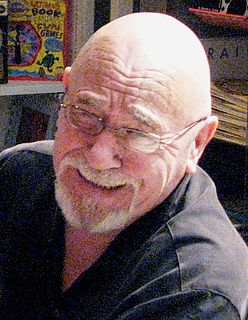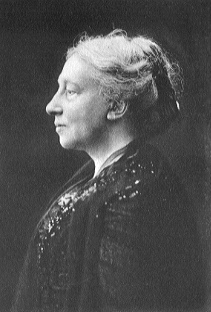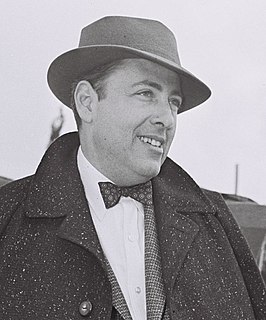A Quote by Winston Churchill
The lights of Saxon England were going out, and in the gathering darkness a gentle, grey-beard prophet foretold the end. When on his death-bed Edward spoke of a time of evil that was coming upon the land his inspired mutterings struck terror into the hearers.
Related Quotes
The young mouse's eyes snapped open, clear and bright. He swung the ancient sword high and struck at the giant adder. He struck for Redwall! He struck against evil! He struck for Martin! He struck for Log-a-Log and his shrews! He struck for dead Guosim! He struck as Methuselah would have wanted him to! He struck against Cluny the Scourge and tyranny! He struck out against Captain Snow's ridicule! He struck for the world of light and freedom! He struck until his paws ached and the sword fell from them!
The Prophet introduced a system of prayer in that it was interwoven into man's daily work: a prayer in the morning when he arose from his bed; a prayer at lunch time, as an indication that if his body needed a diet, so did his spirit; a prayer in the afternoon when he retired from his daily work; a prayer at sunset and a prayer when going to bed.
I tensed for the spring, my eyes squinting as I cringed away, and the sound of Edward's furious roar echoed distantly in the back of my head. His name burst through all the walls I'd built to contain it. Edward, Edward, Edward. I was going to die. It shouldn't matter if I thought of him now. Edward, I love you.
In my Pantheon, Pan still reigns in his pristine glory, with his ruddy face, his flowing beard, and his shaggy body, his pipe and his crook, his nymph Echo, and his chosen daughter Iambe; for the great god Pan is not dead, as was rumored. No god ever dies. Perhaps of all the gods of New England and of ancient Greece, I am most constant at his shrine.
Today I have lost one of my dearest friends, England one of her greatest men. Keith Joseph understood that it was necessary to win again the intellectual argument for freedom, and that to do this we must start from first principles. He was in many ways an unlikely revolutionary. For all his towering intellect, he was deeply humble. He spoke out boldly, however hostile the audience. Yet he hated to give offence. Above all, his integrity shone out in everything he said and did. His best memorial lies in the younger generations of politicians whom he inspired. But for me he is irreplaceable.
If on Judgement Day I were summoned by St. Peter to give testimony to the used-to-be sheriff's act of kindness, I would be unable to say anything in his behalf. His confidence that my uncle and every other Black man who heard of the Klan's coming ride would scurry under their houses to hide in chicken droppings was too humiliating to hear. Without waiting for Momma's thanks, he rode out of the yard, sure that things were as they should be and that he was a gentle squire, saving those deserving serfs from the laws of the land, which he condoned.
The Rolling Stones were an inkling towards an appreciation of the unity of music, dance and words. Any of the black R&B people who had a stage show that involved dancing, music and words did the same thing, except that I thought Jagger's words were good, his music was good and his dancing was good. I spoke to him about Blake and tried to get him to sing [William] Blake's The Grey Monk, to use his words as lyrics. He didn't do it. In the end, I did it myself.
But in reading Shakespeare and in reading about Edward de Vere, it's quite apparent that when you read these works that whoever penned this body of work was firstly well-travelled, secondly a multi-linguist and thirdly someone who had an innate knowledge of the inner workings and the mechanisms of a very secret and paranoid Elizabethan court. Edward de Vere ticks those three boxes and many more. William of Stratford gave his wife a bed when he died [his second best bed].
Turning the pages of scriptural history from beginning to end, we learn of the ultimate pioneer-even Jesus Christ. His birth was foretold by the prophets of old; His entry upon the stage of life was announced by an angel. His life and His ministry have transformed the world. . . . May we ever follow Him.
From this day to the ending of the world, But we in it shall be remembered- We few, we happy few, we band of brothers; For he to-day that sheds his blood with me Shall be my brother; be he ne’er so vile, This day shall gentle his condition; And gentlemen in England now-a-bed Shall think themselves accurs’d they were not here, And hold their manhoods cheap whiles any speaks That fought with us upon Saint Crispin’s day.
Let us fill a cup and drink to that most noble, ridiculous, laughable, sublime figure in our lives... The Young Man Who Was. Let us drink to his dreams, for they were rainbow-colored; to his appetites, for they were strong; to his blunders, for they were huge; to his pains for they were sharp; to his time for it was brief; and to his end, for it was to become one of us.










































